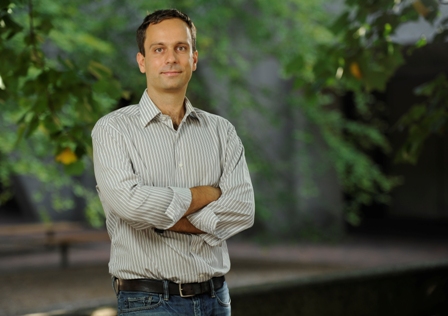
Article courtesy of Vanderbilt CTTC
Having spent the last decade researching and working on the development of medical capsule robots, Vanderbilt University School of Engineering’s Pietro Valdastri is no stranger to innovation, nor to the National Science Foundation’s Innovation Corps.
The corps is a multiweek training program that prepares scientists and engineers to take their research out of the laboratories and into the marketplace.
On Sunday, Valdastri, assistant professor of mechanical engineering and electrical engineering, and colleague Ekawahyu Susilo will begin Valdastri’s second run as principal investigator in the NSF I-Corps program as they explore the commercial potential of modular open-source architecture for building capsule robots.
WATCH: Pietro Valdastri explains his NSF I-Corps work
Their hope is that the robotic toolkits they’ve created will benefit medical practitioners and researchers as well as educators and engineering students.
“Through the I-Corps program, we hope we can determine the best direction to take in terms of selling this to market,” said Susilo.
As they prepare for the I-Corps program, the team, which includes Chris Harris, director of licensing for the Center for Technology Transfer and Commercialization at Vanderbilt, plans to focus heavily on educators. They feel the kits would make excellent hands-on learning tools for engineering students.
“We really think this toolkit will bring a fun experience to kids,” said Susilo. “But it’s not just about playing with the robots, it’s about learning how to built a robot, learning how to program. We also want educators to learn how to use science technology in education.”
Valdastri’s research primarily focuses on the development of medical capsule robots that will replace traditional colonoscopy and reduce the pain and discomfort associated with the often life-saving medical procedure. His first technology accepted into the NSF I-Corps Program was a CO2 insufflation device for colonoscopy. That technology was spun out of Vanderbilt into a startup, EndoInSight.
He is principal investigator with the Science and Technology of Robotics and Medicine Lab — or STORM Lab — in the School of Engineering.
Contact
Heidi Hall, (615) 322-6614
Heidi.Hall@Vanderbilt.edu
On Twitter @VUEngineering